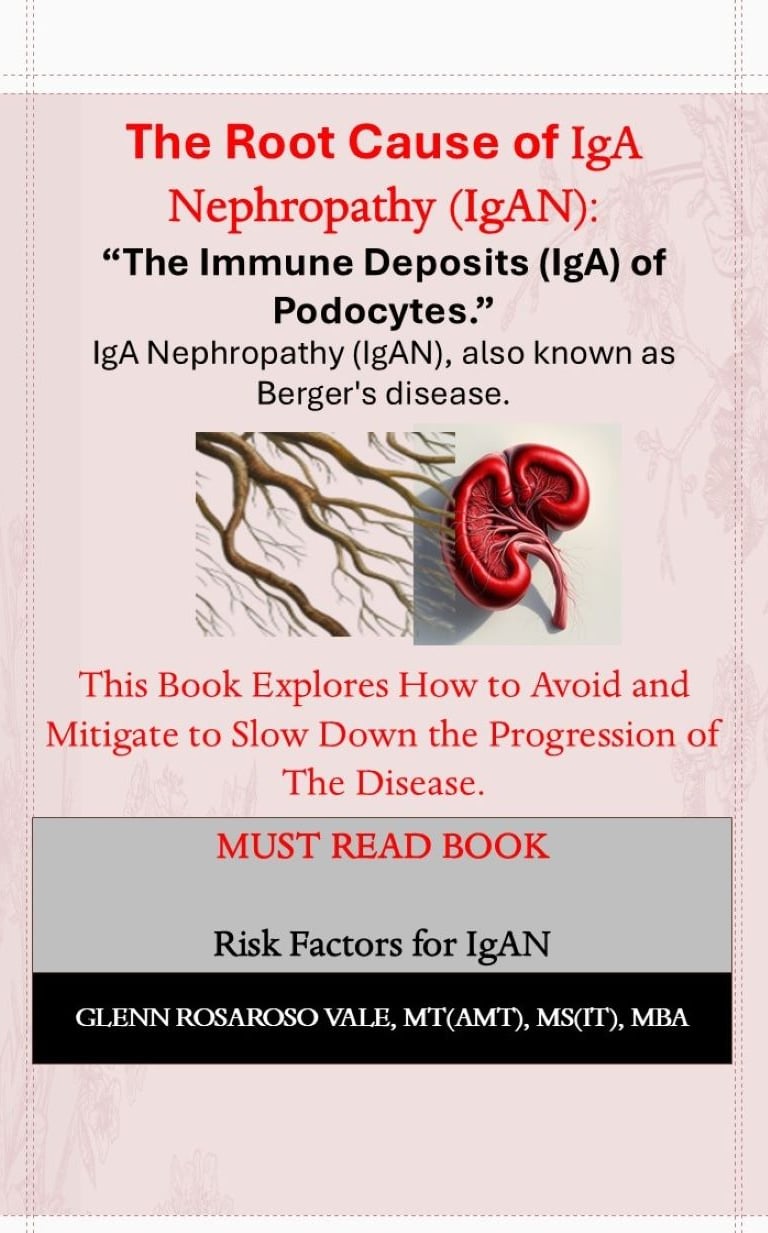"Uncover the truth behind the groundbreaking discovery of the causes of the world's biggest problems. 'The Root Causes' will change how you view the world!"
Understanding Kidney Disease: Causes and Effects
Understanding Kidney Disease: Causes, Symptoms, and Prevention Kidney disease, often called renal disease, refers to a range of conditions that impact the kidneys' ability to function effectively. The kidneys play an essential role in filtering waste from the blood, balancing electrolytes, and controlling blood pressure. When these organs begin to fail, it can result in various health issues, potentially leading to end-stage renal disease (ESRD), which often requires dialysis or a kidney transplant. Common Causes of Kidney Disease Kidney disease can arise due to multiple factors, with two of the most common being diabetes and high blood pressure. Both conditions can damage the blood vessels in the kidneys, reducing their ability to filter waste properly. Over time, this damage can lead to chronic kidney disease (CKD), which may progress to kidney failure.
DISEASES
Glenn Rosaroso Vale, BSMT, MS(IT), MBA
12/2/20243 min read


Understanding Kidney Disease: Causes, Symptoms, and Prevention
Kidney disease, often called renal disease, refers to a range of conditions that impact the kidneys' ability to function effectively. The kidneys play an essential role in filtering waste from the blood, balancing electrolytes, and controlling blood pressure. When these organs begin to fail, it can result in various health issues, potentially leading to end-stage renal disease (ESRD), which often requires dialysis or a kidney transplant.
Common Causes of Kidney Disease
Kidney disease can arise due to multiple factors, with two of the most common being diabetes and high blood pressure. Both conditions can damage the blood vessels in the kidneys, reducing their ability to filter waste properly. Over time, this damage can lead to chronic kidney disease (CKD), which may progress to kidney failure.
Other contributing factors include:
Glomerulonephritis – an inflammation of the kidney’s filtering units (glomeruli) that can cause long-term damage.
Polycystic Kidney Disease (PKD) – a genetic disorder that causes cysts to grow in the kidneys, leading to their eventual dysfunction.
While these conditions are often hereditary or linked to other medical issues, one of the primary and often overlooked contributors to kidney disease is lifestyle. In particular, diet plays a significant role. Following dietary recommendations like consuming 55%-60% carbohydrates with a low-fat approach—such as those outlined in the food pyramid—can lead to unintended consequences. High carbohydrate diets, particularly those rich in sugars, increase the risk of kidney damage. The body's conversion of high sugar levels into sorbitol via the polyol pathway can lead to a toxic buildup of calcium inside kidney cells, causing long-term harm. Over decades, this process can slowly damage the mitochondria in kidney cells, ultimately leading to kidney failure.
Other Risk Factors
Several additional lifestyle factors and habits contribute to kidney disease:
Obesity – Excess weight puts strain on the kidneys, increasing the likelihood of kidney damage over time.
Smoking – Smoking accelerates kidney damage and exacerbates pre-existing conditions like hypertension.
Sedentary Lifestyle – Lack of physical activity can worsen other health conditions like high blood pressure and diabetes, both of which are significant risk factors for kidney disease.
Medications – Prolonged use of non-steroidal anti-inflammatory drugs (NSAIDs) and other over-the-counter medications can worsen kidney health and impair kidney function.
Recognizing Symptoms and Risk Factors
Kidney disease often develops slowly and silently, with few noticeable symptoms in the early stages. As the disease progresses, individuals may experience:
Fatigue
Swelling in the ankles or feet
Changes in urination patterns (e.g., more frequent or less frequent urination)
Unexplained shortness of breath
Recognizing these signs early is crucial for managing kidney health. Regular check-ups and screenings are particularly important for individuals with pre-existing conditions like diabetes or high blood pressure. Regular blood tests can detect early kidney damage, which is crucial for timely intervention.
The Role of Diet and Lifestyle in Kidney Health
As mentioned earlier, diet plays a critical role in kidney health. While the standard dietary advice might recommend high carbohydrate intake, it is essential to pay attention to the quality and type of carbs consumed. Excessive sugar intake contributes to kidney stress and damage over time, making it vital to choose whole grains, fiber-rich foods, and avoid excessive sugary drinks and processed foods.
Incorporating healthier foods and adopting lifestyle changes can significantly reduce the risk of kidney disease. Additionally, certain herbs like turmeric can offer protective benefits to kidney health. One of the active components in turmeric, curcumin, has been shown to protect kidney cells known as podocytes. It achieves this by inhibiting the enzyme CAMK4, which helps reduce kidney stress and ensures the nephrin protein within the kidneys functions properly, supporting overall kidney health.
Conclusion: The Importance of Kidney Disease Awareness
Raising awareness about kidney disease is essential for prevention and early detection. Understanding the common causes and recognizing early symptoms are critical steps in protecting kidney function. Managing lifestyle factors such as diet, obesity, smoking, and physical inactivity can help reduce the risk of kidney disease.
Timely intervention, through regular screenings and a focus on overall health, can lead to better health outcomes for individuals. By educating ourselves and others about kidney health, we not only promote personal well-being but also contribute to healthier communities overall.
The key takeaway: Stay informed, make proactive lifestyle choices, and be vigilant about your kidney health. Regular check-ups and early detection can make all the difference in preserving kidney function and overall health.
Health
Understanding illness to empower your well-being journey.
Wellness
Knowledge
info@rootcauseprevention.com
903-268-6664
© 2024. All rights reserved.
grfv@sbcgloal.net



